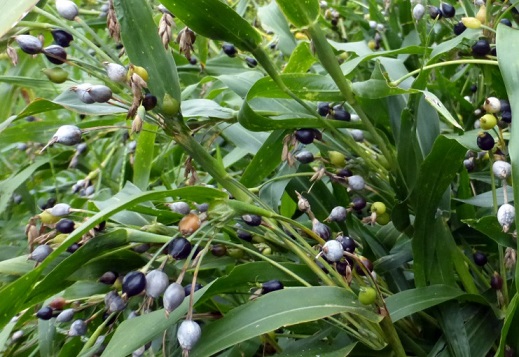Natural Plant Compound Coixol Found to Reverse Kidney Damage by Stopping Cell Aging
Nikhil Prasad Fact checked by:Thailand Medical News Team Jun 05, 2025 8 months, 2 weeks, 4 days, 19 hours, 54 minutes ago
Medical News: Natural Ally in the Fight Against Kidney Injury
A groundbreaking new study by researchers from Shandong University in China has revealed that a natural compound called Coixol, extracted from the medicinal plant Coix lacryma-jobi (also known as Job's tears), may hold the key to protecting the kidneys from severe damage. Acute Kidney Injury (AKI), a potentially life-threatening condition marked by sudden kidney failure, affects up to 60 percent of intensive care patients and currently has few treatment options.
 Coixol, extracted from the medicinal plant Coix lacryma-jobi (also known as Job's tears), may
Coixol, extracted from the medicinal plant Coix lacryma-jobi (also known as Job's tears), may
hold the key to protecting the kidneys from severe damage.
This
Medical News report explores how scientists from the Department of Pharmacology at the School of Basic Medical Sciences and the Department of Cardiology at the Shandong Public Health Clinical Center discovered that Coixol dramatically reduces kidney cell aging—also known as cellular senescence—a key contributor to kidney injury. They showed that Coixol works by directly targeting and reducing the expression of a harmful protein called Plaur, which becomes overactive in AKI.
How Coixol Protects the Kidneys
Using a mouse model of kidney injury, the research team induced AKI by restricting blood flow to the kidneys and then treating the animals with Coixol. The results were striking. The treated mice showed significantly lower levels of two blood markers of kidney injury: serum creatinine and blood urea nitrogen. Additionally, Coixol-treated mice had reduced levels of key kidney injury proteins KIM1 and NGAL, indicating that the natural compound helped preserve kidney function.
Importantly, the scientists found that AKI causes kidney cells—especially those lining the tubules of the kidneys—to age rapidly. These senescent cells release harmful molecules that worsen inflammation and tissue damage. However, when mice were given Coixol, the buildup of these aging cells was sharply reduced. Markers of cellular aging, such as the enzyme SA-β-gal and inflammatory molecules like TNF-α and IL-6, were also found to be much lower in treated animals.
A Molecular Target with Big Implications
To understand how Coixol works, the team analyzed the gene expression of kidney tissues and identified Plaur as a major player in promoting cell aging during AKI. Plaur, a gene that codes for a receptor involved in inflammation and cell damage, was highly active in injured kidneys but significantly suppressed after Coixol treatment.
Further testing confirmed that when Plaur was artificially overexpressed in mice, the benefits of Coixol were lost. This reinforced the idea that the suppression of Plaur is essential to Coixol’s protective effects.
The researchers went a step further and used computer-based simulations to show that Coixol physically binds to the Plaur protein. They confirmed that this binding is strong and s
table, helping to block Plaur’s harmful effects. These simulations showed consistent results over time, adding weight to the idea that Coixol could work effectively inside the body.
Potential for Broader Medical Use
Beyond treating AKI, the study’s findings suggest that Coixol could be useful in managing other diseases where cell aging plays a harmful role, such as chronic kidney disease, neurodegenerative disorders, and cardiovascular conditions. Coixol’s ability to halt the spread of aging signals between cells makes it a unique and promising candidate in what scientists call "senotherapeutics"—drugs that target senescent cells.
The compound also appears to be safe. Previous studies have shown that Coixol is not toxic even at high doses and can be taken orally. This makes it a good candidate for future human trials.
Conclusions and What Lies Ahead
This new study provides the first direct evidence that Coixol can protect the kidneys from damage by targeting and reducing cellular aging. The researchers proved that it works by suppressing the Plaur gene, which in turn reduces inflammation and improves kidney function. Molecular modeling and simulations further confirmed a stable, specific interaction between Coixol and Plaur, supporting its potential as a new therapeutic option.
The findings open the door to a new class of natural, affordable treatments for AKI—a condition with high mortality and limited therapies. While more research is needed before Coixol can be used in hospitals, especially to see if it works after kidney injury has already begun, this discovery marks a significant leap forward in kidney medicine. It also shines a light on the power of natural compounds to solve some of today’s most pressing medical problems.
The study findings were published in the peer reviewed journal: Biology.
https://www.mdpi.com/2079-7737/14/5/560
For the latest on Herbs and Phytochemicals, keep on logging to Thailand
Medical News.
Read Also:
https://www.thailandmedical.news/news/maqui-berries-and-their-potential-to-protect-kidney-health
https://www.thailandmedical.news/news/choline-deficiency-worsens-kidney-damage-in-diabetes
https://www.thailandmedical.news/news/covid-19-linked-to-dangerous-kidney-complications-in-millions-worldwide
https://www.thailandmedical.news/articles/herbs-and-phytochemicals
https://www.thailandmedical.news/pages/thailand_doctors_listings
https://www.thailandmedical.news/articles/nephrology-(kidneys)
